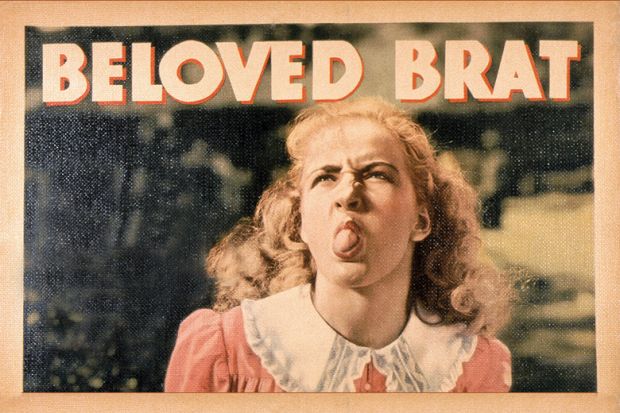With many universities shifting their exams online as a result of the coronavirus, questions are being asked about how students can be given an equal chance to succeed given their varying levels of access to a conducive home environment.
This, I predict, is likely to be a very vexed issue given the volume of complaints students make even about the very equal circumstances in which they take regular, in-person exams.
Once upon a time, I’m sure that students’ exam-room behaviour was impeccable, but now money talks and, in some cases, the boundaries of respect and entitlement have moved. Nor is the malaise confined to those universities with “non-traditional” student bodies. As someone who invigilates at many UK universities – or used to – I can tell you that it is the same everywhere. Indeed, the more prestigious universities’ students tend to be the ones with the most ridiculous, aggressive demands.
Invigilation has the attraction of offering you an income top-up while working alongside a fantastic and, in many cases, very odd bunch of people. You never know what conversations you are going to have with the myriad actors, artists, screenwriters, DJs, poets and retired teachers and police officers. And since I’m not an academic, I clock off as soon as the exam is over; whatever happens afterwards is not my problem.
But while I readily concede that students have every right to complain if things go wrong or they have genuine issues, some of the excessively entitled behaviour I see is hard to forget.
To be clear, most students are lovely. However, there is a small percentage that are willing to complain about anything and everything in the hope of gaining an advantage. The exam is too early – or late. Putting their jacket on the floor, as required, will make it dirty. Why haven’t they been provided with the pencil they were obviously supposed to bring themselves?
I even had one student who complained that she was hungry during the exam. I was made to escort her to the canteen, but she then turned her nose up at all the food on offer! I have had abuse hurled at me by students because they don’t know the meanings of words such as “forename”, or they have accidentally stuck their answer booklet to the table (yes, really). I even know of cases in which the police had to be called out after a student punched an invigilator or threw things at them. I understand that students doing exams are stressed and full of hormones, but such behaviour is still way out of line.
Some students are also happy to complain about their counterparts. Their hat is distracting. They are tapping their pen/foot too loudly. Why have they been allowed to have a drink on their desk? They are snoring (OK, that one was probably fair enough).
And, of course, they also complain about us invigilators. We smell. We are rude. We make too much noise. We dress too provocatively. And then there are the lecturers who treated them unfairly in class, the toilets that don’t flush properly, the building that is too hot/cold/bright/dark and a thousand and one other petty bugbears – all of which we are required to register.
Invigilators also have our own counter-complaints, of course. But we tend to confine our frustration-venting to each other because we realise that if we complain too much, we too will get branded as troublemakers and not be asked back. This is a common fate; we were pretty dispensable even before the coronavirus wiped out this line of work in one fell swoop.
We are also aware that when we do complain about a student, there are rarely any consequences for bad behaviour. Universities are understandably concerned about their reputations – especially in the countries that provide them with their high-fee-paying international students – and are aware of the damage that one adverse social media posting can do. Indeed, some universities positively pander to their students. Some lecturers produce deliberately easy exam papers, or hover around for the whole of the exam, on hand to help any student who is struggling.
There is also a ceaseless rise in the number of students granted accommodations for mitigating circumstances. Of course accommodations should be made for genuine disabilities, and universities are understandably nervous about being accused of discrimination. But even when students are given as much support as possible for physical or mental health issues – such as extra time, their own room, a big-font script, coloured paper or a chair with back rest – not everyone appreciates it. Some still don’t bother to turn up to the exam.
As a receptionist once said to me, how are these querulous wannabe doctors and lawyers going to cope in the real world? They can’t tell the judge that they won’t deliver their closing argument unless the window blinds are open/shut or they are allowed to go for a stretch.
Of course, if students do this year’s exams in their own bedrooms, behind their own blinds and next to their own toilets, you might think there is less scope for such querulous behaviour. But don’t bet on it.
Helen Soteriou is a freelance writer and an invigilator at several UK universities.
Register to continue
Why register?
- Registration is free and only takes a moment
- Once registered, you can read 3 articles a month
- Sign up for our newsletter
Subscribe
Or subscribe for unlimited access to:
- Unlimited access to news, views, insights & reviews
- Digital editions
- Digital access to THE’s university and college rankings analysis
Already registered or a current subscriber? Login








